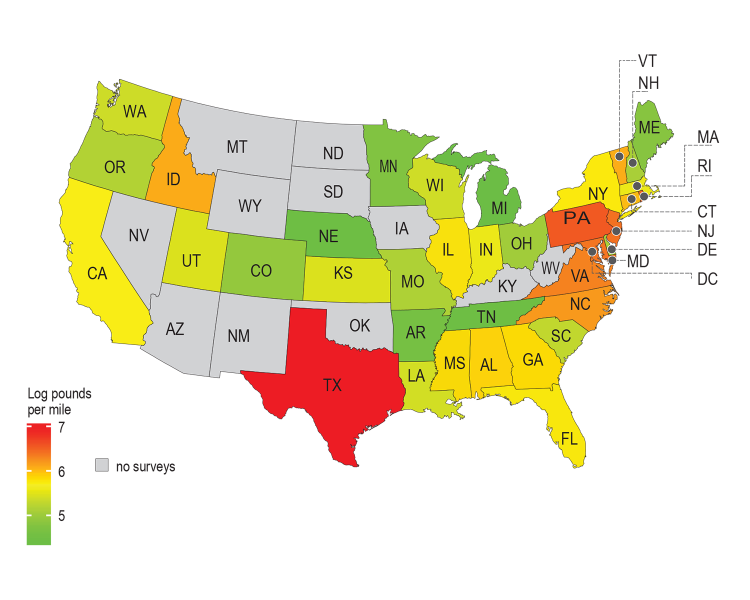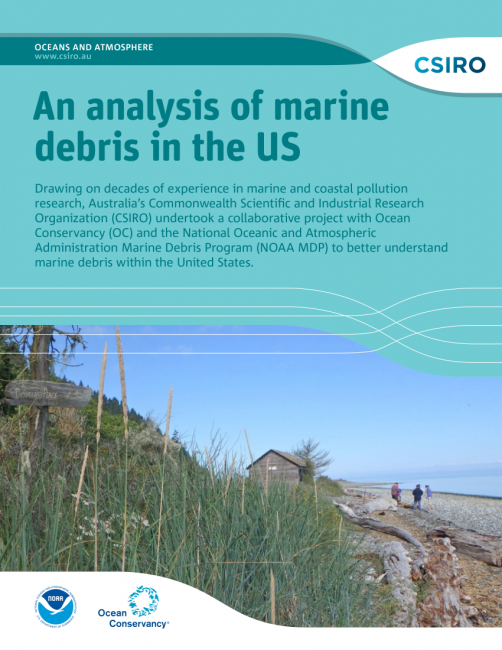Have you ever wondered how much marine debris is on the shoreline of the United States, or what areas of the country have the most debris? What about the most common types of debris in different regions of the United States? These are a few of the questions that were answered by analyzing data from the Ocean Conservancy’s 30-year International Coastal Cleanup, as well as five years’ worth of data from NOAA's Marine Debris Monitoring and Assessment Project. The NOAA Marine Debris Program funded a rigorous statistical analysis of both datasets performed by the Ocean Conservancy (OC), together with the Commonwealth Scientific and Industrial Research Organisation (CSIRO). Through modeling, the project identified geographic patterns and trends in marine debris distribution, assessed marine debris management actions, and produced recommendations to improve marine debris monitoring protocols. We previously introduced this project in the Surveypalooza and The United States of Trash blog posts. We are now pleased to share these exciting results!
From this in-depth analysis, it was estimated that at any given moment there are between 20 million and 1.8 billion marine debris items along the shoreline of the continental United States. Beaches and the shoreline are very dynamic, so debris is constantly being deposited onto and washing off the shoreline. Findings from OC’s dataset indicated high marine debris loads, or hotspots, on the shorelines of Texas, the Gulf States, California, and the Mid-Atlantic states.

Analysis of NOAA’s data showed that container deposit legislation for plastic bottles in Hawaii, Oregon, and California was effective in reducing the amount of plastic bottles found on the shorelines of those states. To read additional results and highlights from this project, check out the project summary and full report.
For more on this project check out the project profile on the NOAA Marine Debris Program website.


I can verify that Padre Island National Seashore is red. I do informal clean-ups every time I go there.